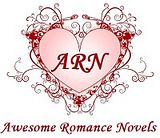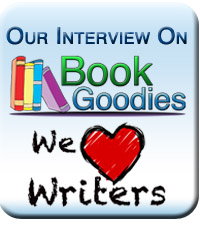When I began sharing my work with others, and reading their works, I was impressed by the similarities between the Wild West in America in the late 1800s, and the wild Australian bush during the same period of time. I thought, even though Australia is on the other side of the world, we're not so different after all. Except for a few things...
I asked my dear friend, Téa to enlighten us Americans. So, without further ado, here she is!
G’day Beck, and
thanks for the invite!
I was born in
England and didn’t move to Australia until my twenties. (I still get ribbed
(teased) about my English accent.) I hadn’t realised (realized) until I started
writing just how many differences there were.
Everyone knows
about the spelling – Australians use English spelling, which is hardly
surprising because the Queen of England is still our Head of State, but there
is a whole lot more to Australian English. Not more, actually – less.
Aussies shorten everything,
and if possible add a “y”, “ie” or an “o”.
Case in point …
my daughter’s name. I didn’t want her name to be shortened. I thought I’d beat
the Australians at their own game, so she was christened Katy. I didn’t think
there was much they could do to that. Wrong! Kat or Kate or even Kato! And it’s
not just names.
There’s arvo (a nice quiet Sunday ‘afternoon’), smoko (that used to mean time for a
cigarette break – these days it just means a break). The Salvation Army is
known as the Salvos and St Vincent de
Paul charity shops as Vinnies.
We have pressies (presents) at Chrissie (Christmas) then put on our cozzies (swimming costumes) and sunnies (sunglasses) and head for the
beach, usually wearing thongs (NO! On
our feet – flip flops, sandals, not the other kind!)
Then of course
there are the other issues … our seasons are the other way around so Christmas
is the summer, Easter in Autumn (Fall), and we don’t celebrate Thanksgiving but
we do celebrate Australia Day (January 26th) and ANZAC Day on April
25th (that’s pretty much the same as your Memorial Day, I think.)
And then, there’s the question of North and South – in Australia you face your
house north if you want to live on the sunny-side.
Best of all is
the urban myth … or is it? Apparently the water goes down the plughole
anti-clockwise (counter clockwise) in Australia whereas in the Northern
hemisphere it goes clockwise … I have to admit I’ve never researched it!!
I discovered my
latest book is categorised (categorized) a Western historical romance – the
problem is it is set in the East (of
Australia) and there are no cowboys only stockmen and bushrangers (highwaymen)
and the heroine’s father owns a stud (ranch)! In fact a cowboy is often a
derogatory term in Australia. (A dishonest or
careless person in business, especially an unqualified one – originating from
the English, I think.) And today jilleroo and jackeroo are well-used terms for
a station (not railway - ranch) hands.
The question
is, does it destroy the story for you? Should we be standardizing our spelling
and vocabulary globally or hanging onto our national idiosyncrasies?
What
d’you reckon?
Cheers,
and thanks for your time – cobber!
P.S. Aussies have some very colourful (colorful)
sayings, generally you won’t see them in romance books. Be warned, some might
offend and I’ve censored them already!
· Up at sparrow’s fart (very early)
Off like a bride's nightie ( very quickly)
· Flat out like a lizard drinking (very, very busy)
· May your chooks turn to emus and kick you dunny door down (a dunny is an
outside toilet – and you’d use this if you were unhappy, very unhappy, with
someone!)
· He couldn’t fight his way out of a paper bag (he’s weak)
· Don’t get your knickers in a knot (don’t get angry)
· He’s off like a bucket of prawns in the sun (he’s leaving in a hurry)
· Mad as a cut snake (seriously angry)
· We’re in the middle of woop-woop (we’re lost)
· As slow as a wet week (a tedious time)
Blurb:
From Escape's Queen of Australian
historical romance comes a story about a privileged member of Australian's
squattocracy, a bushranger, and a very special horse.
Born into the rough, but privileged society of the
Australian colonial landowners, Lilibeth Dungarven finds herself married,
widowed, and, much to her distress, back under her father’s thumb, all before
her twenty-first birthday. Determined not to forgo her dream of breeding the
perfect racehorse, Lilibeth ignores propriety and sets out to restore the
family’s flagging fortunes.
When Captain Tom and his
mismatched band of bushrangers stumble across a mob of the best horses they’ve
ever seen, and the daughter of the famed Dungarven horse stud, they know their
fortunes have changed. Their catch is worth a king’s ransom. All they have to
do is hold her for seven days. How hard can it be to control the pampered
daughter of a colonial upstart?
Publication Date: July 1, 2014
Amazon
and Goodreads Reviews:
Forget
work, forget all your responsibilities and slide into this delicious story ...
a well-written book by a talented writer ... since I doubt I’ll be
visiting Australia, it was a treat to feel like I was there, herding horses to
market across the Australian Outback. The landscape assumes the position
of a character in this exciting romance; playing a pivotal role in Lily’s adventure.
A fabulous read by a very talented Aussie author … I have no
hesitation in HIGHLY recommending Lily’s Leap.
Biography:
Téa Cooper lives in a stone cottage
on one hundred acres of bushland, just outside the time-warp village of
Wollombi, NSW Australia. When she isn't writing, Téa can be found haunting the
local museum or chatting to the locals, who offer a never-ending source of
inspiration.
Lily’s Leap
is Téa's second Australian historical romance set in Wollombi. Her first, Matilda’s
Freedom is
available now.
In October, Jazz Baby, set Sydney in 1920 releases and in
February, Forgotten Fragrance, Book I
of a family saga entitled From the Ocean
to the Outback. At the moment she is working on a parallel time-line series
called The Adventures of Miss Abigail
Wynter. She has also written three contemporary romances.
Personal Links:
Thanks, Téa, for this enlightening post. I love our differences as well as our similarities. Lily's Leap sounds great. Horses, the vast Outback, a feisty woman, a man big enough to tame her...who could ask for more?






































Thanks for the invite, Becky!
ReplyDeleteGreat post, Tea! Since I write western historicals about the American west, I've often wondered what differences and similarites existed with the Australian "westerns". Thanks for enlightening me. I definitely vote for keeping the regional spellings and expressions. It adds so much color to a story.
ReplyDeleteI agree! Mind you sometimes when I'm writing I have to play around a bit to try and slip in the meaning of an expression I want to use. It can be a challenge - a bit like a cryptic crossword!
ReplyDeleteThanks, Tea, for visiting today. I think it's a fun post, and loved hosting you, even with all my anti-Aussie virus software issues!
ReplyDeleteI'm so sorry it caused a problem, Becky. I have no idea why. If it's not your anti-Aussie virus issue all I can think of is the PC Mac argument. She'll be right!
DeleteI love this post! Lily's Leap is now added to my TBR list for sure.
ReplyDeleteHere in the South, I've heard/used, "Don't get your panties in a wad," and "Couldn't fight his way out of a paper bag."
Very interesting. Thanks!
Thank you for dropping in, Larynn and for adding Lily to your TBR pile! Cheers.
DeleteAs a fellow Aussie who also originated in the UK I forget I don't sound like the locals. Love Australia and the outback and the beautiful coastlines.Maybe I'll see you in Sydney at the RWA conference.
ReplyDeleteYou most definitely will see me in Sydney at RWA, Maggie. Look forward to it!
DeleteSince I'm right in the middle of writing a story set in Oz, I love this article. It's a big help. I don't agree with keeping the regional spellings. I think that difference would pull the reader out of the story. I know it does me. However, I'd love to read more expressions in Oz-set tales. I'm trying to add a few colorful ones to my WIP...I have a very good friend in Beerwah and I'm always quizzing her for different expressions. Boy howdy, did she send me a very, very colorful list the other day. Yes, it would need editing...lol...Best of luck with your books..
ReplyDeleteHow exciting, Tabitha. I'd love to see more books set in Australia. Where are you setting your story?
DeleteOh, this was such a fun post! My mother was a fanatic about Austrailian bushland, while my father is from the West, just a bit more modern, but he wasn't raised with running water. Anyway, because of my background, I love both!!! I love the differences and the similarities and think they should be preserved.
ReplyDeleteAbsolutely! Thanks for stopping by.
DeleteWonderful and interesting post
ReplyDeleteThanks, Lindsay. I'm glad you enjoyed it.
DeleteThanks, everyone, for visiting today. Love all the comments!
ReplyDeleteYou've been busy while I was sleeping!!
DeleteWhat a fun interview, Tea--and to answer your question, NO! You shouldn't change anything regarding Australian vernacular. To me, those unique expressions are enjoyable and enlightening. One of my favorites I learned from you: "It's a good job..." And you weren't referring to someone's performance!
ReplyDeleteIt is a good job you called in, Linda! Thanks
ReplyDeleteAwesome post! And those sayings / expressions were very fun. I was surprised I understood some of them.
ReplyDeleteThanks, Kipha!
DeleteFun post, Becky and Tea. I would hate the vernacular to be changed as that is what defines a place and its culture. Onya mate for chuckin' us those bonza sayings!
ReplyDeleteTa, Cobber!
DeleteLoved it Tea ... and soooo spot on! I've been here for a bit over 17 yrs, English is my second language, having learnt (not learned) English English, I had to re-learn ... and QUICKLY. I remember when my husband asked me whether I wanted "sangers" or "bangers and mash". LOL ... I simply stared at him.
ReplyDeleteGreat post!
Oh Iris! I found it hard enough when English was my first language! I still use a flannel though, and not a washer, and a vest goes under my shirt not over it!
DeleteGreat interview. From the language lesson, I just get the impression that Aussies are fun, happy-go-lucky people. Loved it.
ReplyDeleteGlad you enjoyed it, Carole!
DeleteThis was an extremely fun interview. Thank you, Tea, for coming up with the idea.
ReplyDelete:) My pleasure! Thank you for the invitation. I think I might repost to my blog - is that okay with you?
ReplyDeleteI'd be honored. Go for it.
ReplyDelete